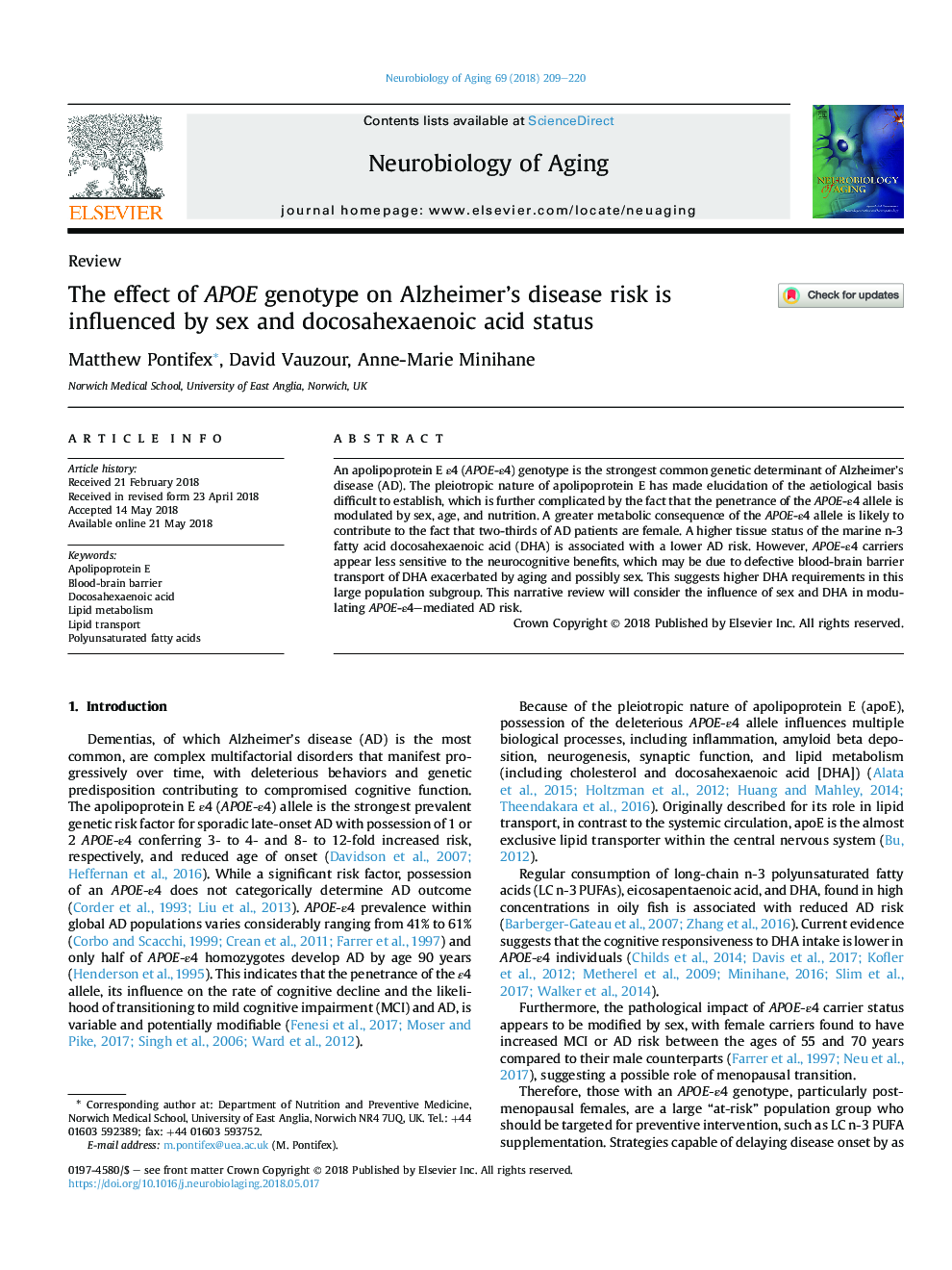| کد مقاله | کد نشریه | سال انتشار | مقاله انگلیسی | نسخه تمام متن |
|---|---|---|---|---|
| 6802882 | 1433515 | 2018 | 12 صفحه PDF | دانلود رایگان |
عنوان انگلیسی مقاله ISI
The effect of APOE genotype on Alzheimer's disease risk is influenced by sex and docosahexaenoic acid status
دانلود مقاله + سفارش ترجمه
دانلود مقاله ISI انگلیسی
رایگان برای ایرانیان
کلمات کلیدی
موضوعات مرتبط
علوم زیستی و بیوفناوری
بیوشیمی، ژنتیک و زیست شناسی مولکولی
سالمندی
پیش نمایش صفحه اول مقاله

چکیده انگلیسی
An apolipoprotein E ε4 (APOE-ε4) genotype is the strongest common genetic determinant of Alzheimer's disease (AD). The pleiotropic nature of apolipoprotein E has made elucidation of the aetiological basis difficult to establish, which is further complicated by the fact that the penetrance of the APOE-ε4 allele is modulated by sex, age, and nutrition. A greater metabolic consequence of the APOE-ε4 allele is likely to contribute to the fact that two-thirds of AD patients are female. A higher tissue status of the marine n-3 fatty acid docosahexaenoic acid (DHA) is associated with a lower AD risk. However, APOE-ε4 carriers appear less sensitive to the neurocognitive benefits, which may be due to defective blood-brain barrier transport of DHA exacerbated by aging and possibly sex. This suggests higher DHA requirements in this large population subgroup. This narrative review will consider the influence of sex and DHA in modulating APOE-ε4-mediated AD risk.
ناشر
Database: Elsevier - ScienceDirect (ساینس دایرکت)
Journal: Neurobiology of Aging - Volume 69, September 2018, Pages 209-220
Journal: Neurobiology of Aging - Volume 69, September 2018, Pages 209-220
نویسندگان
Matthew Pontifex, David Vauzour, Anne-Marie Minihane,